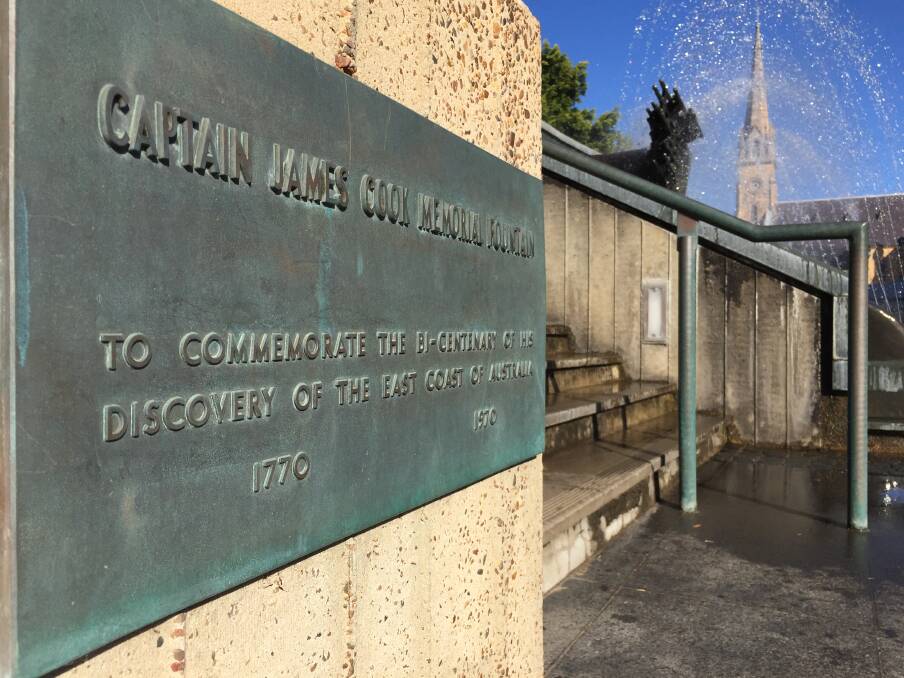
When 5000 people gathered in Civic Park last month for a protest against racial injustice, two plaques celebrating Captain James Cook's "discovery" of Australia's east coast in 1770 stood metres away from the guest speakers.
Subscribe now for unlimited access.
$0/
(min cost $0)
or signup to continue reading
The plaques were installed in 1970, four years after the fountain opened and three years after Australia voted in a referendum to include Indigenous people in the nation's population.
Newcastle Greens councillor John Mackenzie, who attended the Black Lives Matter rally, will present a motion at next week's council meeting calling for the plaques to be removed.
The signs, one of which is now missing, name the fountain after Captain Cook and "commemorate the bi-centenary of his discovery of the east coast of Australia."
Cr Mackenzie's motion says the plaques are "verifiably false" and represent an "historical narrative that is antiquated and offensive".
He told the Newcastle Herald on Monday that the plaques' claim that Europeans had discovered the continent "literally cements the erasure of Aboriginal people from Australia's history".
He said constituents had raised the issue with him after the June 6 rally "sharpened people's attention to the way in which those sort of monuments continue to perpetuate certain ideas through the community".
Worimi man and Newcastle University history professor John Maynard was not aware of the plaques but supported their removal, likening them to the inscription on a Cook statue in Sydney's Hyde Park brought to light in 2017 by Aboriginal journalist Stan Grant.

"It doesn't recognise upwards of 65,000 years of Aboriginal presence on this continent," Professor Maynard said. "I think it's time for a real reflection, and let's look for a balanced understanding of history."
Professor Maynard, who spoke at the BLM rally, said 19th century surveyor, politician and pastoralist Henry Dangar's involvement in the Myall Creek Massacre should also prompt a rethink of Newcastle parks and streets named in his honour.
Cr Mackenzie said community opposition was growing to monuments marking Australia's discriminatory past, just as it had in the US and England.
"The response I've received from local constituents has given me the confidence that this is something people want to see," he said.

He said few people realised the council had retrospectively named the fountain.
"That's a consequence of the fact that adding Captain Cook's name was completely an afterthought in 1970.
"I've never heard it referred to as the Captain Cook Memorial Fountain."
He said the plaques could be moved without affecting the heritage value of the fountain, which had not been designed to reflect Captain Cook or his accomplishments.
While you're with us, did you know the Newcastle Herald offers breaking news alerts, daily email newsletters and more? Keep up to date with all the local news - sign up here
IN OTHER NEWS


